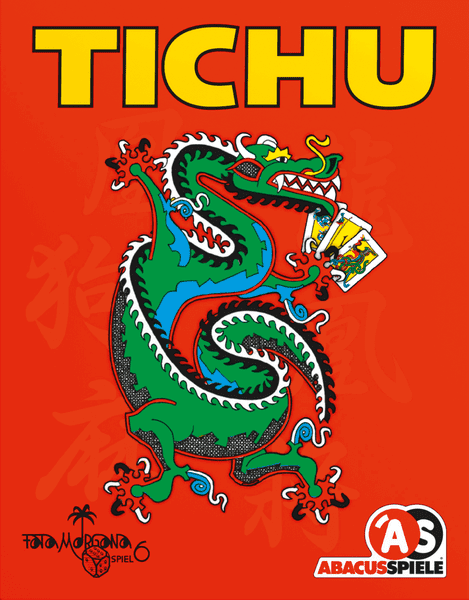Tichu (1991) Board Game
Tichu is a popular card game that was released in 1991 and designed by Urs Hostettler. It is a trick-taking game that originated in China and has gained international popularity over the years. The game is known for its strategic gameplay and team-based mechanics, making it a favorite among card game enthusiasts.
Game Components of Tichu
How To Setup Tichu
To set up Tichu, each player is dealt eight cards initially, followed by six more after the “Tichu” and “Grand Tichu” declarations. Players then exchange three cards with each other-one card to each opponent and one to their partner. If a player declares “Tichu” before this exchange, they can change their outgoing exchange cards. The player with the Mah Jong leads the first trick.
Gameplay Mechanics and Game Objective
– Points for 5s, 10s, and Kings.
– Special card values (Dragon: 25 points, Phoenix: -25 points).
– Bonus points for successful “Tichu” calls and for both team members getting rid of their cards first.
Player Experience
Tichu offers a highly nuanced and strategic gameplay experience that is both exciting and challenging. The game requires a balance between risk-taking with “Tichu” calls and careful planning of card combinations. The partnership aspect adds depth, as players must work together to maximize their points. Despite its complexity, the game is intuitive enough for new players to enjoy, while experienced players can delve into deeper strategies.
Pros
Cons
Personal Thoughts on Tichu
Tichu is a game that is perfect for those who enjoy strategic card games with a strong social component. It is ideal for game nights with friends who appreciate depth and complexity in their games. While it may not be the best fit for casual or new gamers due to its nuances, it can quickly become a favorite among those who invest time in learning its strategies. Tichu’s unique blend of traditional Chinese game elements and modern design makes it a standout in the world of card games.
We are supported by our audience. When you purchase through links on our site, we may earn an affiliate commission, at no extra cost for you. Learn more.

